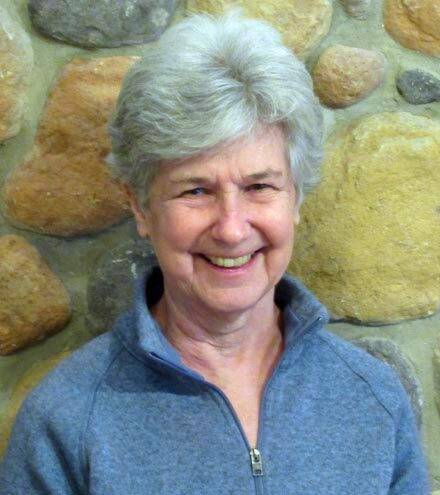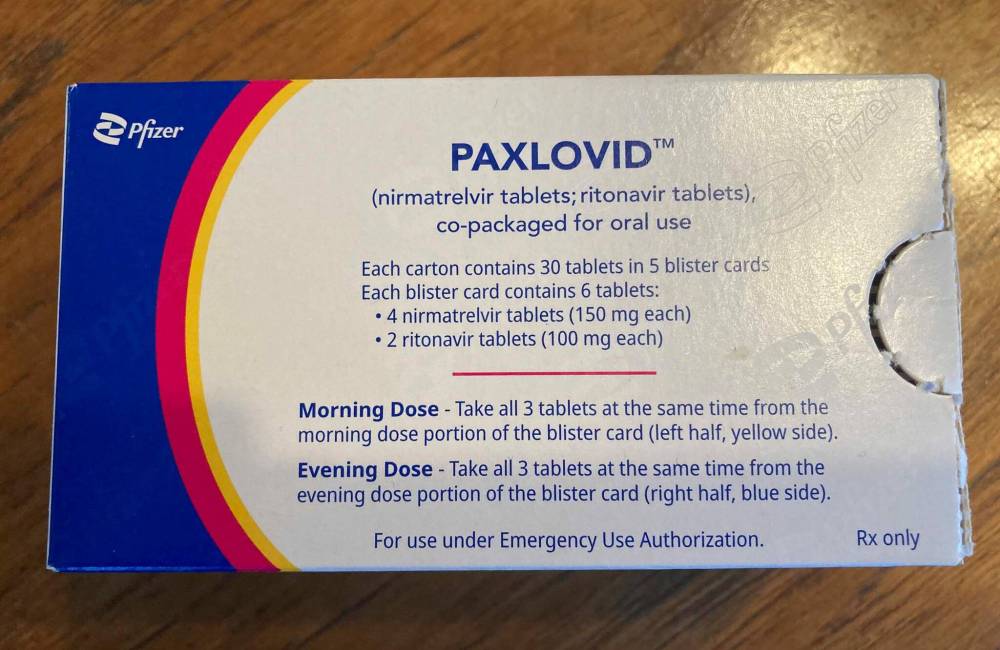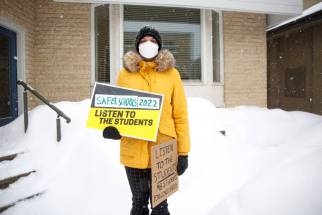New COVID treatment drug painless experience: recovered patient
Read this article for free:
or
Already have an account? Log in here »
To continue reading, please subscribe:
Monthly Digital Subscription
$19 $0 for the first 4 weeks*
- Enjoy unlimited reading on winnipegfreepress.com
- Read the E-Edition, our digital replica newspaper
- Access News Break, our award-winning app
- Play interactive puzzles
*No charge for four weeks then billed as $19 plus GST every four weeks. Offer only available to new and qualified returning subscribers. Cancel any time.
Read unlimited articles for free today:
or
Already have an account? Log in here »
Hey there, time traveller!
This article was published 14/02/2022 (1045 days ago), so information in it may no longer be current.
One of the first Manitobans to receive the antiviral COVID-19 pill that became available in the province last month has fully recovered, with no side effects.
Mary McIntosh, 72, lives in Victoria Beach and is among the 83 Manitobans recently issued Pfizer Inc. drug Paxlovid to treat COVID-19.
She reached out to Health Links when she was diagnosed with COVID-19 on Jan. 30. McIntosh has autoimmune hepatitis (a chronic liver disease), thus qualifying her to receive the new treatment.

“I did have to advocate for myself with respect to treatment options,” said McIntosh, who is fully vaccinated against COVID-19, including a booster.
“But having made the initial contact with Shared Health, I found things moved very quickly.”
They had to: the window where COVID-19 treatments are most effective is just five to seven days after symptoms appear.
McIntosh was prescribed combination drug Paxlovid by a doctor assigned to her by Shared Health, after a series of phone calls with various health-care professionals. After getting the go-ahead from her own doctor to insure it wouldn’t affect her current medication, she immediately began the five-day prescription.
“Once they got the prescription at (Health Sciences Centre), then I was contacted by the pharmacist there, and I was told that there would be no cost to me, and that the prescription would be delivered to where I was isolated,” McIntosh said.
“Once they got the prescription at (Health Sciences Centre), then I was contacted by the pharmacist there, and I was told that there would be no cost to me, and that the prescription would be delivered to where I was isolated.”
– Mary McIntosh
She decided to wait out her self-isolation at a friend’s place in Winnipeg. She received bubble packs starting Feb. 2, with 30 pills in total: three each morning and three each afternoon, about 12 hours apart. By the end of her self-isolation period, she had fully recovered, she said.
The treatment is part of what the province calls a “test and treat” strategy, meaning quickly getting treatment in the hands of people more susceptible to having a severe response to COVID-19.
According to the province, out of the 83 who first received the treatment, 46 live in the Winnipeg health region, 20 in Prairie Mountain, nine in Southern Health, five in Interlake-Eastern and three in Northern Health. (The numbers are expected to be updated Wednesday.)
There were 978 treatments left available in Manitoba, as of Tuesday.
(If you fit into any of the five eligible categories and test positive for COVID-19, the province recommends contacting Health Links to see if you qualify for treatment.)

“Monoclonal antibodies and antiviral treatment are available by referral at a number of locations throughout the province,” a provincial spokesperson said in a statement.
“This process is similar to other illnesses, where patients need to contact their health providers or call Health Links-Info Santé when they’re feeling ill. A health professional will recommend the best course of treatment once they connect.”
McIntosh said she received no check-ins nor a follow-up from Shared Health, but added the doctor she worked with said they had treated “maybe a dozen” people up to that point and it was obvious it was a new process for everyone involved.
“Prescribing health professionals have been encouraged to follow up with their patients, but similar to treatments for other illnesses, patients should contact their doctors if their conditions worsen after treatment,” the provincial spokesperson said.
“I’ve trusted the science, I’ve trusted the decisions on the vaccine. I trust Health Canada, who made the approval.”
– Mary McIntosh
According to a fact sheet McIntosh received, potential side effects of the drug include an altered sense of taste, high blood pressure, diarrhea and muscle aches. She said experienced none of them.
McIntosh was “a bit excited” to be one of the first to try a new method to treat COVID-19.
“I’ve trusted the science, I’ve trusted the decisions on the vaccine. I trust Health Canada, who made the approval,” she said.
The same fact sheet says Paxlovid should not be taken by people with severe COVID-19, may interact with other medications and herbal supplements, and recommends people use physical contraceptives or stay abstinent while taking it, as it may decrease the effectiveness of birth control.
McIntosh said she was inspired to speak about her experience because there’s been “a lot of negativity.” She hoped her safe recovery and relatively painless experience would help other people possibly seek out treatment they need.
“Much has been said about the current state of our medical system,” she said. “My experience with contracting COVID was a good one — if you can say getting a potentially deadly virus is a good thing.”
malak.abas@freepress.mb.ca

Our newsroom depends on a growing audience of readers to power our journalism. If you are not a paid reader, please consider becoming a subscriber.
Our newsroom depends on its audience of readers to power our journalism. Thank you for your support.







